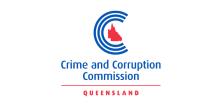“Our financial performance in the past 12 months demonstrates we have been pursuing the right balance between achieving operational outcomes whilst investing in our staff and ensuring we have the plans in place to implement improvements in our technology and systems to support our two strategic objectives: reducing the incidence of major crime and corruption in Queensland and building our organisational capability.”
---Chairperson Alan MacSporran QC
Since its inception in 2014, the CCC had continually worked to become more strategically focused and to operate as a unified, collaborative organisation. In the 2016-17 Annual Report, Chairperson Alan MacSporran QC stated that the implementation of the CCC Strategic Plan 2016–20 contributed to that success.
Work continues on use of force and reform of the police discipline system
The CCC maintained its focus on excessive use of force by police, and the reform of the police discipline system in 2016-17.
The CCC finalised 16 investigations into excessive use of force which resulted in four criminal charges. Twenty-two matters were referred back to, or continued to be dealt with by, the QPS as a disciplinary matter or criminal prosecution. The CCC also made 12 prevention recommendations to improve how the QPS managed excessive use of force matters.
Establishment of a police discipline working group
In 2016, the CCC led the establishment of a police discipline working group to consider the implementation of a new system for managing QPS complaints and discipline.
The working group brought together expertise from within the CCC, the QPS and police unions, and relied on bipartisan support from the Queensland Government represented by the Attorney-General and the Minister for Police, as well as the Opposition represented by the shadow Attorney-General and shadow Minister for Police.
In 2016, the working group agreed to trial a Joint Assessment and Moderation Committee (JAMC) to review how serious complaints are triaged and monitored. As part of this trial, the JAMC evaluated how each complaint was initially assessed and then agreed to a plan of action. Significantly, this process was designed to give both the CCC and the QPS an assurance that complaints were being appropriately assessed and clearly established the responsibilities of each agency.
Achievements in the 2016-17 financial year
In 2016-17, the CCC finalised Operation Altana, which resulted in seven people being charged with 688 offences relating to the alleged trafficking of ice and cocaine on the Gold Coast. The CCC also increased its paedophilia investigations by 77 per cent (23 in total) using additional funding (reported in the previous year’s annual report) which was provided by the Queensland Government to improve forensic computing capability.
The CCC also held crime hearings in support of:
- 33 organised crime investigations involving, among other things, murder, drug-trafficking, fraud, money laundering, weapons production and trafficking
- nine serious crime investigations involving murder or attempted murder
- nine investigations (from vulnerable victims referrals) involving the murder, manslaughter, grievous bodily harm and/or torture of victims aged under 16 years and
- one criminal paedophilia investigation.
Other highlights of our work in 2016-17 include:
- Charging a total of 24 people with 724 criminal offences resulting from our major and organised crime investigations
- Seizing drugs with an estimated value of $636,809
- Restraining assets to the value of $21.12M
- Forfeiting assets to the State to the value of $8.99M
- Holding 313 hearing days to support major crime investigations. This included 264 hearings relating to investigations and 49 intelligence hearings.
- Receiving 3041 complaints of corrupt conduct, involving 7898 separate allegations of corruption.
- Charging 24 people with 196 criminal offences resulting from corruption investigations
- Making 59 recommendations for disciplinary action from our corruption investigations relating to 29 people
- Holding 29 hearing days to support corruption investigations.
Law enforcement agencies join forces to remind Australians of cold-call investment fraud
Building on the work of Operation Sterling and previous investigations into cold-call investment fraud, in July 2016 the CCC, QPS, the Australian Criminal Intelligence Commission (ACIC) and the Australian Securities and Investment Commission (ASIC) held a joint press conference in Brisbane warning Australians about the dangers of cold-call investment frauds.
The focus of the press conference was to reach as many prospective Australian investors to alert them to these ongoing scams, and educate them on what to do if contacted. These warning messages were contained in a joint report titled Cold-call investment fraud: How organised crime is targeting your money.
Complaints about local government elections trigger Operation Belcarra
Following the Queensland local government elections on 19 March 2016, the CCC received complaints about the conduct of candidates for several councils, including Gold Coast, Ipswich, Moreton Bay and Logan. The CCC commenced Operation Belcarra to:
- determine whether candidates committed offences under the Local Government Electoral Act 2011 that could constitute corrupt conduct, and
- examine practices that may give rise to actual or perceived corruption, or otherwise undermine public confidence in the integrity of local government, with a view to identifying strategies or reforms to help prevent or decrease corruption risks and increase public confidence.
Between April and June 2017, the CCC conducted nine days of public hearings into issues related to corruption and integrity in local government.
The CCC found widespread non-compliance with legislative obligations relating to local government elections and political donations. This non-compliance was largely caused by a deficient legislative and regulatory framework.
The CCC would publish a report into the matters canvassed at the public hearing in October 2017.
Continued disruption of Outlaw Motorcycle Gangs (OMCGs)
Since 2013, the CCC had focused on investigating and gathering intelligence on the behaviours of OMCGs in an effort to disrupt the activities of these groups and to identify current and likely future trends.
Intelligence hearings
In 2016–17, CCC intelligence hearings and crime investigative hearings continued into OMCG activity with particular attention on examining shifts in the OMCG landscape.
This was as a result of Queensland law enforcement becoming aware that several new OMCGs and other criminal gangs had sought to establish chapters in Queensland.
Two of the most prominent of these, namely the Satudarah and Comanchero OMCGs, were the subject of two new intelligence operations approved by the CCC’s Crime Reference Committee in December 2016. The operations allowed the CCC to explore the activities of those two emergent groups.
Hearings under the new operations predominantly focused on the establishment of the two new clubs in south-east Queensland, recruitment practices, violence and members’ drug-trafficking activities.
OMCG reviews and appeals relating to the use of coercive powers
The following reviews and appeals relate to the use of coercive powers in OMCG matters during 2016–17:
- In January 2017, the Supreme Court found a witness guilty of contempt for refusing to answer questions without reasonable excuse at a CCC hearing held in early 2016 into an OMCG-related drug trafficking investigation. The witness was sentenced to three and a half months imprisonment.
- In May 2017, the Brisbane Supreme Court found an OMCG associate guilty of contempt for refusing to answer questions in relation to a murder investigation. The witness was sentenced to four months imprisonment.
For more information on the CCC’s work during 2016-17, view the Annual Report here.



